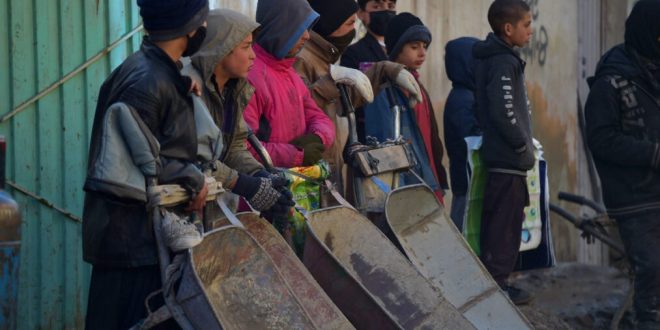KABUL – The UN Office for the Coordination of Humanitarian Affairs (OCHA) has projected that 22.9 million people in Afghanistan will require humanitarian aid in 2025, a slight decrease from the 23.7 million estimated for the current year. However, this reduction does not signal an improvement in living conditions, as acute food insecurity is expected to worsen.
According to OCHA, 14.8 million Afghans will face acute food shortages next year, a staggering increase of 2.4 million compared to this year’s figures reported by the World Food Program (WFP). The report also highlights worsening access to essential services, with 14.3 million people projected to have limited healthcare access in 2025. Furthermore, 7.8 million women and children are expected to require nutritional assistance, a marked rise from the 9.2 million identified by the WFP this year.
The OCHA report attributes the deepening crisis to restrictive measures imposed by the Taliban, which have exacerbated vulnerabilities, particularly for women, girls, and marginalized groups. “Afghanistan’s population remains subject to escalating rights restrictions imposed by de facto authorities, heightening protection risks for all, especially women and girls,” the report states.
Economic instability remains a significant concern, with widespread unemployment, household debt, and poverty affecting nearly half of Afghanistan’s population. Female-headed households are especially at risk. Compounding these challenges are an economic crisis, weak healthcare and education infrastructure, and the anticipated return of refugees from neighboring countries, which is expected to strain already limited local resources and complicate aid delivery further.
Seasonal challenges and climate change are also intensifying the humanitarian crisis. Rising temperatures and prolonged drought are projected to worsen in 2025, exacerbating Afghanistan’s vulnerability to environmental and agricultural instability.
In response to these challenges, U.N. humanitarian agencies plan to reach 16.8 million people in 2025. OCHA estimates that $2.42 billion will be needed to deliver essential aid, underscoring the urgency of international support.
“The international community must act swiftly and decisively to address Afghanistan’s worsening humanitarian disaster,” OCHA emphasized. The report serves as a stark reminder of the escalating needs and the critical importance of sustained aid efforts in the region.
 Afghanistan Times
Afghanistan Times




